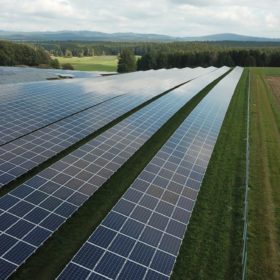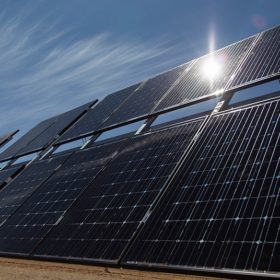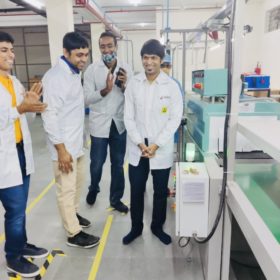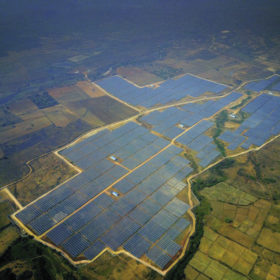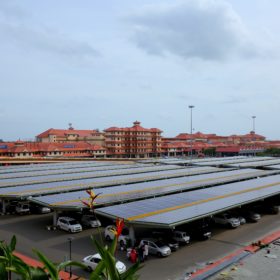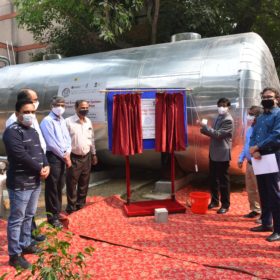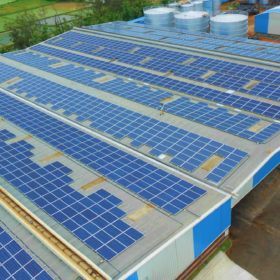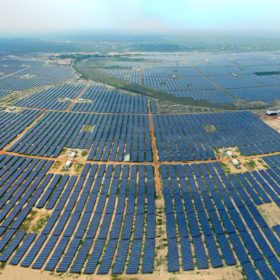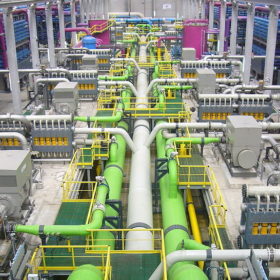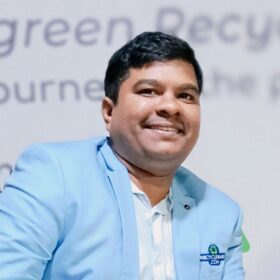Evolving risks could dampen solar investment flow
Indian solar sector remained buoyant even amid Covid pandemic as 15.3 GW of solar capacity (including solar-wind hybrid) was sanctioned in the current year’s first half itself. However, returns expectations from equity investments rose from around 14% in the first half of 2019 to 16-17%, indicating heightened risk perceptions among investors.
Nalanda University to get a 5 MW solar plant
Bids are invited from government-owned entities to set up a ground-mounted, grid-connected solar plant at the university’s campus in Bihar. The plant is to be installed in EPC mode. Bidding closes on November 27.
Sterling and Wilson Solar opens European headquarter in Spain
Led by Vikas Bansal, the Seville-based office will target Europe’s growing solar market in countries like Portugal, Spain, Italy and Poland.
Inverted Energy opens 100 MWh lithium battery plant
The lithium battery assembly facility at Okhla, New Delhi, would initially produce batteries for energy storage in residential, commercial and industrial sectors, and for electric mobility applications. The plan is to eventually cater to critical applications like telecom and healthcare as well.
The long read: India’s tender prices tumble, despite Discom delays
India’s state-owned electricity distribution companies (Discoms) are in dire financial straits, as they owe some $16 billion to generators, according to the Institute for Energy Economics and Financial Analysis (IEEFA). Despite this, national PV auctions have been oversubscribed and are setting record low tariffs in the country, indicating strong interest from developers – if the Discom challenge can be overcome.
AAI, NTPC sign MoU to make airports 100% solar-powered
Initially, solar plants shall be set up at airports in Tamil Nadu and Rajasthan, which require a PV capacity of around 55 MW and 8 MW, respectively, to become 100% solar-powered.
Thermal energy storage system goes online at IIT Kanpur
The thermal energy storage system with a 775 tonnes-of-refrigeration heat rate is installed at IIT Kanpur’s Centre for Environmental Science and Engineering building. It is part of an urban pilot under a joint Indo-US project called UI-ASSIST on Smart Grid and Storage Technology.
Rooftop solar market in 2020
It has been a rocky year for installers with issues like availability of modules from Chinese suppliers, restricted construction due to local lockdowns, and uncertainty over import duties. Going forward, the market could see a dramatic rebound if net-metering is allowed with a current cap of 1 MW and re-introduced in the states that have shifted to gross-metering.
Adani Green Energy arm commissions 50 MW solar project
The latest addition takes Adani Green Energy’s operational renewable energy capacity to 2,850 MW, including 2353 MW under a joint venture with French oil and gas major Total.
PV powered desalination is “the most competitive design”
Scientists in France conducted an analysis on the competitiveness of water desalination, taking a large scale project planned for Morocco as a case study. The research concludes that PV without storage is the cheapest option to power desalinators, and will likely remain so until at least 2030.
